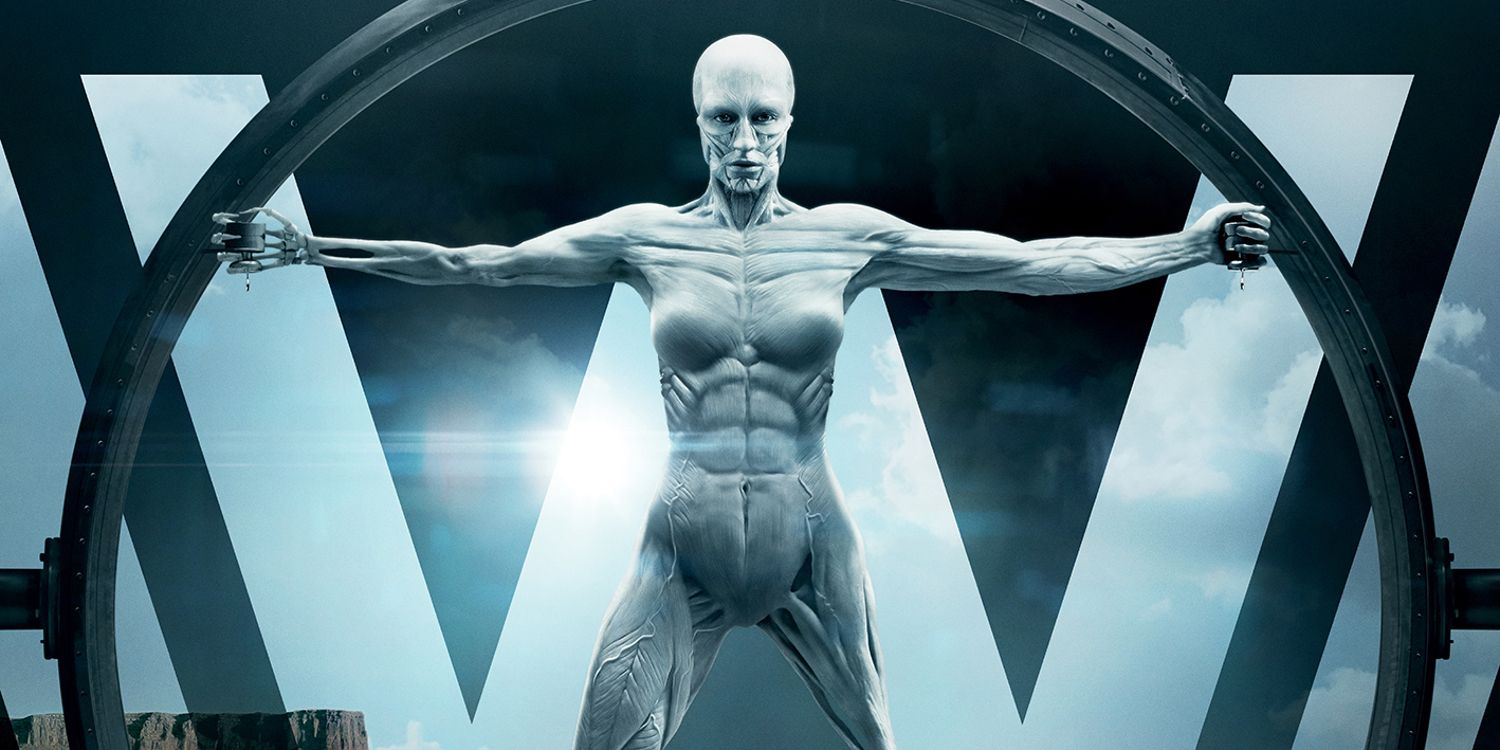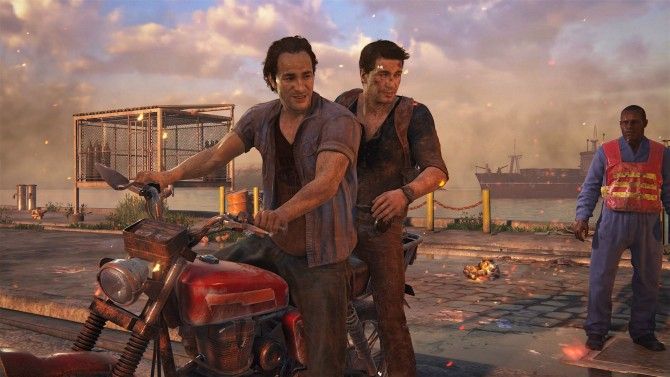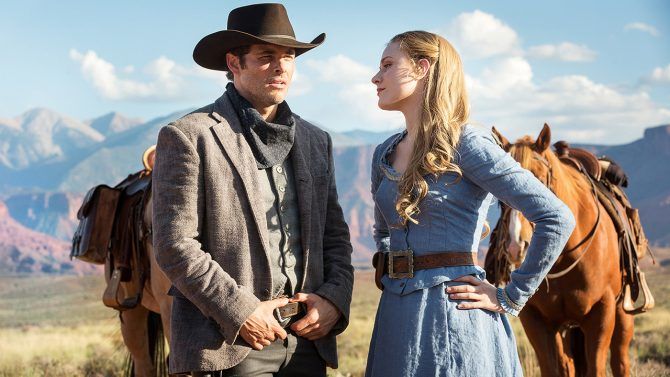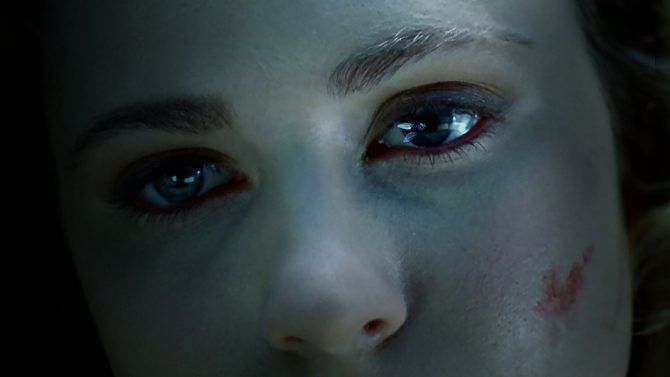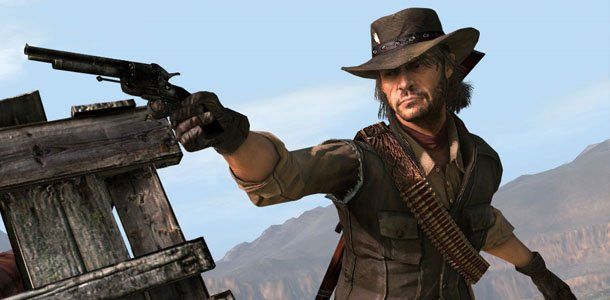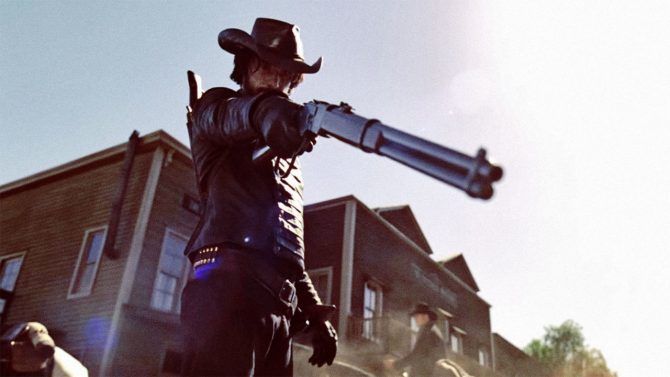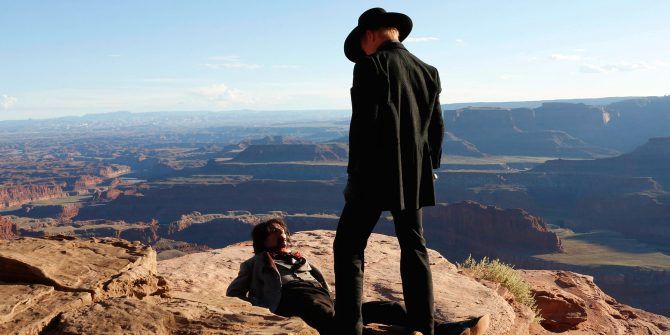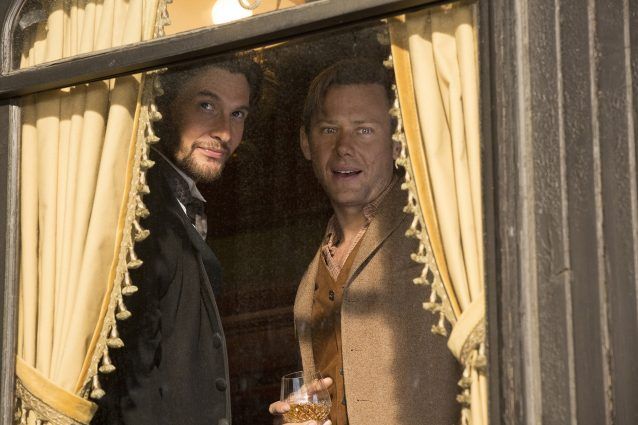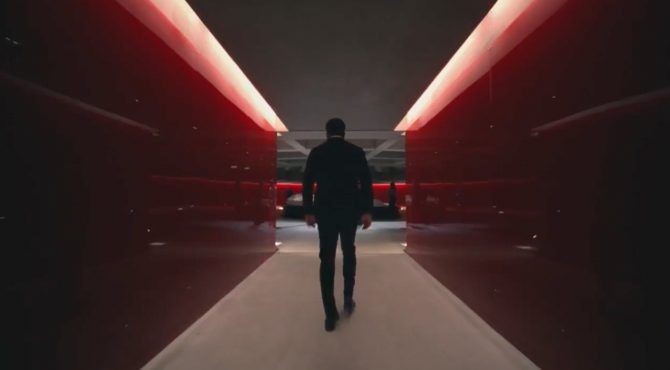Since gaming was in its infancy, one of the biggest allures of video games has been their power to immerse players inside of a world. From the early days of Pong, Super Mario Bros., and more, video games offered their own unique thrills compared to movies, TV, and other art forms, and since then that power has only been increased with the introduction of virtual reality to make games more immersive than ever before.
In the case of games as they relate to films and TV, there's been a far more interesting (but mixed) relationship between the two. Since the beginning, many video games have aimed for immersing players by crafting "cinematic" experiences, ranging from heavily film-influenced games like Metal Gear Solid to the Uncharted series to more literal takes on "cinematic experiences," like the games of David Cage or Telltale Games' numerous series. When it comes to translating film, television, and the various ways that those mediums work in games, the transition is (more or less) pretty seamless. Action-packed cutscenes, more dynamic set pieces, and intricate stories and dialogue are more prominent than ever when it comes to games trying to emulate film and TV.
However, on the opposite end of the spectrum, the transition from games to television and film (most of the time) have been middling, at best. Through the decades, numerous studios and production companies have tried to bring video games over to film and television with (mostly) negative results. For every passable film adaptation like 2005's DOOM or 2006's Silent Hill, scores of video game-to-movie adaptations have ranked among some of the worst films of all-time: the less said about 1993's Super Mario Bros., the better.
By and large, it's become an unfortunate expectation that most movie adaptations based on video games fail to capture what makes gaming so special. Where non-interactive cutscenes or dynamic action setpieces can make you feel like you're in a living, breathing movie, films have had the far more difficult task of capturing the interactivity and aspects that make gaming unique. Based on what we've seen so far from games that became films, the outlook has been bleak, but with a recent new series from HBO, we finally may have found the exception to the rule that video games can't faithfully be translated into unique, exciting film or TV experiences.
That exception to the rule comes from HBO's newest original series Westworld and how, in many ways, it's possibly the best "video game TV series" we've seen yet, without actually being based on any particular video game in question: it's actually far from that, in a direct sense.
Having debuted earlier this month in its first season (after being announced back in 2014), HBO's Westworld is a modern, expanded take on the original 1973 film of the same name, written & directed by author Michael Crichton (Jurassic Park, Congo, Timeline). Focusing on a futuristic theme park (no dinosaurs this time, unfortunately) that recreates an early Western civilization, Westworld presents an elaborate sci-fi world where paying customers come to play literal "Cowboys and Indians" inside its virtual playground. Once inside Westworld, the park visitors (known as "Newcomers" to the park's digital inhabitants) are free to fill their heart's desires inside the park, no matter how ambitious, how sadistic, or how questionable they may be.
A trailer for the original 1973 film Westworld, followed by the trailer for HBO's original series inspired by the film. (Videos via RetroBiografen and HBO: YouTube)
In the series' first two episodes, Westworld has already shown many of the possibilities that await guests inside its virtual world: the Newcomers shown live out their extravagant Wild West fantasies, take out bad guys (or become the bad guys), and engage in the type of violence and sex that would keep viewers of HBO's other shows (like Game of Thrones) entertained. Outside the fantasies of Westworld that we see from the perspectives of its "Hosts" (artificially-intelligent androids that play the park's various roles), viewers also get glimpses into the "real" world from the perspectives of the park's staff, such as Westworld creator Dr. Robert Ford (Anthony Hopkins) and Bernard Lowe (Jeffrey Wright), the park's programming head and designer of its artificial intelligence.
As a piece of entertainment in the era of "Golden Age TV," Westworld is one of the most unique series from HBO (and TV at large) to date. Epic in scope and comparable to some of TV's biggest hits like Game of Thrones and The Walking Dead, Westworld combines action, drama, and intrigue into a (literal) world where two drastically different genres - Westerns and Sci-fi - meet in the middle for a highly unusual, but highly intriguing world of endless possibilities.
Even though it's only two episodes in, Westworld is a show that's already easy enough to recommend based on its premise alone. However, one of the most interesting aspects of Westworld is not just how it manages to blend a world that fuses the intense action of Westerns and the intrigue of sci-fi films, but also in how it also manages to mix in the influences of video games and game development, making it an easy recommendation for gamers looking for their next TV fix.
Though it's not at all a straight adaptation of a game to film or TV like this year's Warcraft or the upcoming Assassin's Creed, Westworld's clearest influences seem to come less from acclaimed TV series like Breaking Bad or Game of Thrones, and instead seem more intrinsically tied to video games. Compared to what we usually see from "video game movies" or games that try to emulate movies, Westworld instead feels like the first TV series to be inspired by games, and without compromising what makes either of those art forms unique.
The similarity of Westworld in relation to video games doesn't happen to come by coincidence. In several instances, Westworld's showrunners have openly said the series is inspired by some of the biggest names in gaming today, and like the epic world that the show is titled after, it's even easier to see that the setting is, more or less, an elaborate open-world game in TV form.
Speaking earlier this month in a panel at New York Comic Con, a report by Polygon detailed statements from the show's executive producers Lisa Joy Nolan and Jonathan Nolan, where they specifically referenced games such as BioShock, The Elder Scrolls series, and (unsurprisingly) Red Dead Redemption as being large influences not only in the themes and tone of Westworld, but in a larger sense on the narrative and how its large ensemble cast plays out their roles. If Red Dead Redemption brought players into a living, breathing Western movie, consider Westworld a look at that perspective from its NPCs and the game designers crafting the experience.
In an interview with VICE last month, it's even clearer to see how Westworld brings so many of the elements that make games like Red Dead Redemption or Skyrim such engaging and immersive experiences, and how they are impacting the ways that the show unfolds. Specifically, Jonathan Nolan mentioned how he "used to play video games" before becoming a father and working in television, and explained how the advances in games and storytelling are already on the verge of impacting other mediums:
"A lot of interesting storytelling that's happening right now is in video games—which literally didn't exist when Michael Crichton was writing the original film. Now, video games are a bigger industry than film or TV. I've never worked in that industry, but we have friends who have, and I was fascinated by the concept of writing a story in which the protagonists' actions aren't part of the story. In games like The Elder Scrolls: Skyrim, Red Dead Redemption, or the sandbox games that Bioware make, morality is a variable. How do you write a story in which the hero's moral component exists on a spectrum? That's a fascinating challenge.
I'm also fascinated by how non-player-characters in video games have their own lives. In Skyrim, when you walk into a village, you aren't necessarily the most important person there. The NPCs have lives that happen whether you're there or not. I was listening to directors' commentary from Ken Levine about building BioShock Infinite and the affection that game developers and designers develop for their characters. It's a qualitatively different relationship than the one screenwriters have with their characters, because video game characters don't just recite dialogue—they do shit, and the players interact with them. It's a relationship that I think Crichton anticipated to some degree, but it's become much more complicated than even he could imagine."
Much like Skyrim or Red Dead Redemption, Westworld's story, world, and setting seem ripe for the type of game experience that we've seen in something like Red Dead Redemption. When breaking down Westworld, its structure and world are very much comparable to the way that we see games and how they are played.
In shifting perspectives, the show gives viewers an insight into the lives and work of the park's staff and creators - Westworld's equivalent of game designers and developers. With characters like Dr. Robert Ford and Bernard Howe, we witness them overseeing the operation and day-to-day business of the park, while exploring issues with Westworld's "Hosts" and malfunctioning AI - much like game designers look for bugs and glitches. We also get to see more of the behind-the-scenes work as Westworld's narrative director Simon Quarterman (Lee Sizemore) painstakingly crafts elaborate stories, characters, and situations for Westworld's guests to discover - not unlike how players in massive open-world games or MMOs discover new quests or stories. In the series' second episode, Quarterman even gives a presentation on a new "attraction" for the park featuring new characters and a big mission that would feel right on stage at E3 or other game conferences.
From the other side, the show also looks at the perspectives of Westworld's "Hosts" -- essentially the park's NPCs -- and the "Newcomers," the "players" in Westworld's intricate game. In the first two episodes viewers are introduced to the concept of the hosts, which exist in the present day as nude, unsettling androids, while in Westworld they are engineered and altered to fit various roles within the park. Those roles and hosts range from characters such as the innocent young Dolores (Evan Rachel Wood), the noble do-gooder Teddy Flood (James Marsden), the charming but deadly prostitute Maeve Millay (Thandie Newton), and the Man in Black (Ed Harris), a mysterious Newcomer digging into a "deeper level" of Westworld.
In this way, the show serves viewers an even more intriguing take on the ins and outs of its world, and in a way presents an experience that is almost like watching a video game unfold from the perspectives of its NPC characters, rather than from the player's perspectives. Through the course of the show, the Hosts are killed, maimed, and treated to far worse at the hands of the Newcomers - yet at the end of the day, their memories are wiped, the town is reset, and everything goes right back to how it was before: like it all never happened.
Taking the story in this direction is one of those ways in which Westworld truly feels like the television equivalent of a video game. In particular, that feeling comes across even more in the series' second episode, "Chestnut," where the perspective shifts to two Newcomers, William (Jimmi Simpson) and Logan (Ben Barnes), who in many ways represent that idealized view of video game players in a world with little-to-no limits. Once inside the park, Logan immediately succumbs to his desires by seeking out prostitutes and committing random acts of violence. William, on the other hand, shows more compassion and introspection inside the park, with the lines being blurred between what is real and what is the illusion created by Westworld's digital landscape.
In a lot of ways, the same ideas that Westworld presents can be related to how players engage with and interact with video games. With video games, we seek immersion and the ability to live out power fantasies - we play as the idealized version of ourselves that we dream of or live out alternative lives that we could perhaps never have. In the way that violence and destruction can go relatively consequence-free in games like Grand Theft Auto or Skyrim, Westworld takes that concept to some exciting (and intriguing) new places, in relation to how we view and play video games.
With striking visuals, a unique theme, a stellar cast, and compelling drama and action, Westworld from a first glance looks like a series that in the coming years may stand right alongside Game of Thrones or The Walking Dead as one of the biggest genre works out there on the small screen. However, what really sets Westworld apart from those (and other series) is that when digging deeper, it's easy to see that the show has far more in common with Red Dead Redemption or BioShock than it does to most other shows or movies out there.
Even though its roots come from a 1970s sci-fi film, Westworld may represent one of the most interesting blends of art that I've seen in quite some time, as a combination of television and video games that seems right on time with virtual reality on the rise. For years we've seen games trying to chase after film and present more "cinematic experiences," but that fact that Westworld comes across as so "video game-like" is more of a compliment than anything else to video games as a maturing, influential medium.
Westworld is currently in its first season on HBO, with new episodes airing Sunday nights at 9PM ET.

